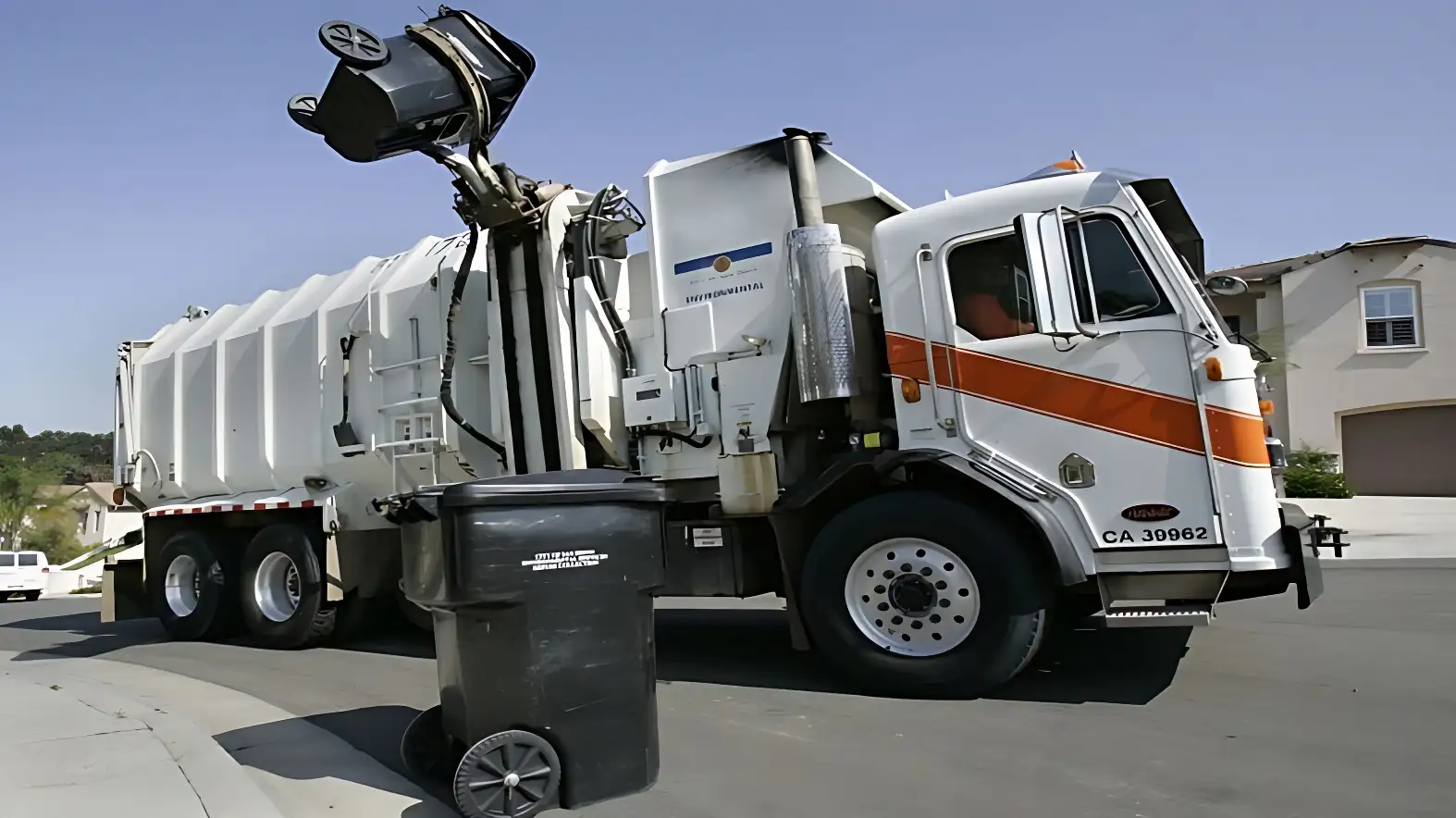Garbage collection is a necessary service that we all rely on to keep our homes and communities clean and safe.
However, many of us may not know how much we are actually paying for this service each month.
The cost of a monthly garbage bill can vary depending on a number of factors, such as the location, the size of the household, and the type of garbage service provided.
In this blog, we will explore the factors that determine the cost of a monthly garbage bill and provide tips on how to save money on your garbage bill.
How much is a monthly garbage bill?
In most cities and towns in the United States, the cost of a monthly garbage bill is typically between $20 and $40 per month.

This price usually includes the pickup and disposal of regular household waste, as well as the cost of any additional services such as recycling or yard waste pickup.
In larger cities, the cost of a monthly garbage bill may be higher due to the increased population density and the need for more frequent pickups.
For example, in New York City, the monthly garbage bill can be as high as $70 per month.
Here is a comparison table on the average monthly garbage bill in different cities or regions:
| City/Region | Average Monthly Garbage Bill |
|---|---|
| New York City | $20-$30 |
| Los Angeles | $25-$35 |
| Chicago | $20-$30 |
| Houston | $20-$30 |
| Miami | $20-$30 |
| Dallas | $20-$30 |
| Washington D.C. | $25-$35 |
| San Francisco | $30-$40 |
| Philadelphia | $20-$30 |
| Boston | $30-$40 |
What affects the cost of a monthly garbage bill?
There are several factors that can affect the cost of a monthly garbage bill, including:
1. Volume of garbage:
The more garbage a household produces, the more it will cost to dispose of it.
Some garbage companies charge by the bag or by the weight of the garbage, so households that produce a lot of waste will pay more.
2. Frequency of pickup:
Garbage companies may charge more for households that need garbage pickup more frequently.
For example, if a household requires weekly pickups instead of bi-weekly pickups, the cost may be higher.
3. Type of service:
Different levels of service can affect the cost of a monthly garbage bill.
For example, the curbside pickup may be more expensive than drop-off service at a landfill or recycling center.
4. Additional services:
Some garbage companies may charge extra for additional services like recycling, yard waste pickup, or bulky item pickup.
5. Location:
The cost of a monthly garbage bill can vary depending on where a household is located.
Garbage companies in urban areas may charge more than those in rural areas due to higher costs of operation.
6. Government regulations:
Government regulations and taxes on waste disposal can also affect the cost of a monthly garbage bill.
7. Service provider:
Different garbage service providers may have different pricing structures based on the service they provide, their infrastructure, and operating costs.
Overall, the cost of a monthly garbage bill can be affected by a combination of these factors, and it will vary depending on the specific service provider, location, and the household’s needs and preferences.
How To Calculate Your Monthly Garbage Bill?

Calculating your monthly garbage bill involves determining the cost of collection and disposal services for your household waste.
The process typically involves the following steps:
1. Determine the size of your garbage container:
Most garbage collection companies offer a variety of container sizes to choose from, such as 32-gallon, 64-gallon, and 96-gallon containers.
The size of the container you choose will affect the cost of your monthly bill.
2. Determine the frequency of collection:
Garbage collection companies typically offer either weekly or bi-weekly collection services.
If you choose the weekly collection, your monthly bill will be higher than if you choose the bi-weekly collection.
3. Check for additional services:
Some garbage collection companies offer additional services, such as yard waste collection, bulky item collection, or recycling services.
These services will add to the cost of your monthly bill.
4. Check for any applicable taxes or fees:
Some municipalities may charge taxes or fees for garbage collection services. These will be added to your monthly bill.
5. Check for any discounts or promotions:
Some garbage collection companies may offer discounts or promotions for customers who sign up for a certain number of months or who pay their bills on time.
Be sure to check for any discounts or promotions that may apply to you.
Once you have gathered all of this information, you can calculate your monthly garbage bill by multiplying the cost of the container size, frequency of collection, and any additional services by the number of months in your billing cycle.
You will then add any applicable taxes or fees and subtract any discounts or promotions to get your final monthly bill amount.
Average Monthly Garbage Bill By City

The cost of garbage bills varies greatly across different cities.
Factors such as population density, local regulations, and the type of service offered can all play a role in determining the cost of garbage collection in a particular city.
For example, cities with high population densities such as New York City and Los Angeles tend to have higher garbage bills compared to cities with lower population densities.
This is because the cost of collecting and disposing of waste in densely populated areas is typically higher than in less densely populated areas.
Additionally, the type of service offered can also impact the cost of garbage bills.
Cities that offer curbside pickup and recycling services tend to have higher bills than cities that only offer once-a-week garbage collection.
This is because the additional services require more staff and equipment to be maintained, which increases the overall cost of garbage collection.
To give a specific example, the average monthly garbage bill in New York City is $25.00, while the average monthly bill in Los Angeles is $37.00.
In contrast, the average monthly garbage bill in Phoenix, Arizona is only $13.00.
This difference in cost can be attributed to the fact that New York City and Los Angeles have much higher population densities and offer more extensive garbage collection and recycling services compared to Phoenix.
FAQs on How Much Is A Monthly Garbage Bill
1. How Is The Monthly Garbage Bill Calculated?
The monthly garbage bill is calculated based on the size of your property and the frequency of garbage collection.
It may also include additional fees for special services such as curbside recycling or bulky item pickup.
2. Can I Reduce My Monthly Garbage Bill?
Yes, you can reduce your monthly garbage bill by reducing the amount of waste you generate and properly recycling or composting.
You can also inquire about a smaller garbage container or a less frequent collection schedule.
3. What Happens If I Don’t Pay My Monthly Garbage Bill?
If you don’t pay your monthly garbage bill, your service may be suspended or you may incur additional fees.
It’s important to stay current on your payments to avoid any interruption in service.
4. Is There A Difference In Cost Between A Monthly Or Annual Garbage Bill?
Some municipalities offer the option to pay your garbage bill monthly or annually.
Paying annually may result in a discounted rate, but it is best to check with your service provider for specific details.
5. Are There Additional Fees For Special Services Such As Bulky Item Pickup Or Yard Waste Collection?
Yes, some service providers may charge additional fees for special services such as bulky item pickup or yard waste collection.
These fees are typically added to your monthly garbage bill.
6. Can I Dispute My Monthly Garbage Bill If I Believe It’s Incorrect?
Yes, if you believe your monthly garbage bill is incorrect, you can contact your service provider and request an explanation or dispute the charges.
Conclusion
The cost of a monthly garbage bill can vary greatly depending on a number of factors such as the location, the size of the household, and the services provided by the waste management company.
It is important to research and compares different options in order to find the best deal for your household.
